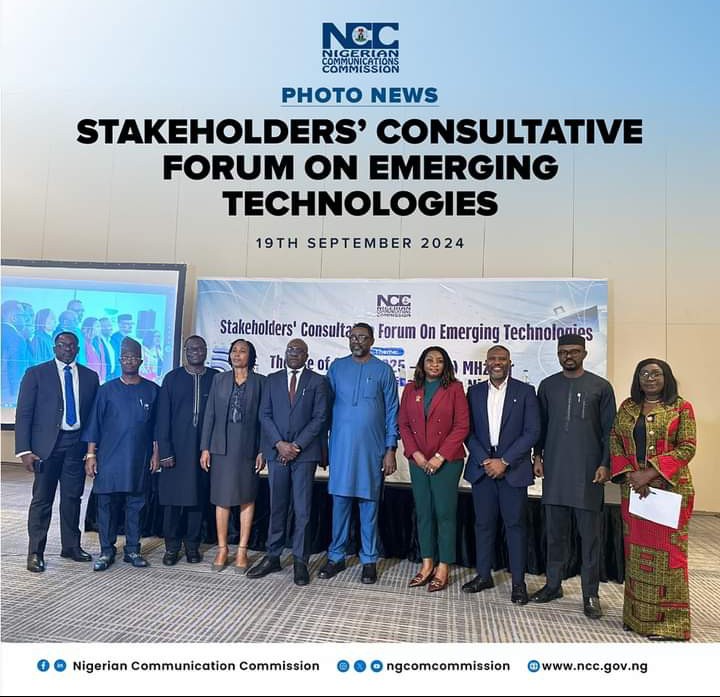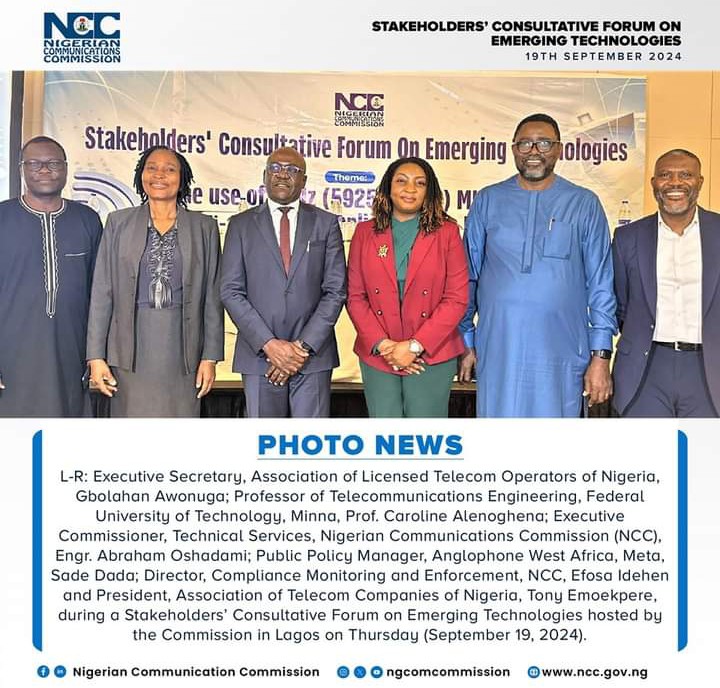
The Nigerian Communications Commission has unlocked the 6GHz frequency band for unlicensed Wi-Fi use, marking a significant milestone in the nation’s push to enhance connectivity. By opening this spectrum, the NCC is empowering faster, more reliable wireless internet access, paving the way for innovations in smart technologies, improved digital experiences, and bridging the digital divide. This strategic move promises to boost network capacity, lower latency, and fuel Nigeria’s digital economy, fostering greater internet access for businesses, homes, and public spaces across the country.
Operators are pushing for public-private partnerships (PPPs) to capitalize on this moment, aiming to expand their networks into underserved and vulnerable regions. They see it as an opportunity to bridge gaps in connectivity and provide crucial services where they’re most needed.
On the basis of this however, at the Annual Stakeholders Consultative Forum on Emerging Technologies in Lagos, the Nigerian Communications Commission (NCC) highlighted the growing strain on current Wi-Fi frequencies due to rising demand. Dr. Aminu Maida, Executive Vice Chairman of NCC, represented by Engr. Abraham Oshadami, Executive Commissioner of Technical Services, explained that the 5GHz and 2.4GHz bands, commonly used for Wi-Fi 5, are becoming overwhelmed. As internet usage surges, the need for additional frequency bands to ease the burden on existing ones is becoming increasingly urgent, emphasizing the importance of exploring new spectrum options for future connectivity needs.
Nigeria is set to join a growing number of countries leveraging the 6GHz band for Wi-Fi 6 technology, according to Maida. She highlighted that the 6GHz band, spanning from 5925 MHz to 7125 MHz, will unlock a vast new spectrum. This expansion is crucial for accommodating the increasing demand for high-speed internet and advanced applications, marking a significant step in Nigeria’s digital evolution.

Maida highlighted the vital role of Wi-Fi in powering the digital economy, emphasizing its importance in distributing fixed broadband connectivity across homes, offices, and diverse environments. She explained that Wi-Fi serves as a critical link, ensuring seamless internet access, which fuels innovation, communication, and productivity in the modern world. As the backbone of digital infrastructure, Wi-Fi supports the growing demand for reliable connectivity, driving the evolution of businesses, education, and everyday life in a digitally-driven economy.
Most home internet traffic now flows through Wi-Fi, seamlessly connecting users to the digital world. In enterprise environments, Wi-Fi plays a crucial role, managing vast amounts of data while supporting numerous devices simultaneously. It offers enhanced reliability, faster data speeds, and reduced latency, making it indispensable for modern businesses.
Engr. Atiku Lawal, Head of Spectrum Administration at the Nigerian Communications Commission (NCC), highlighted the growing congestion in the 2.4GHz and 5GHz Wi-Fi bands, which is stifling their full potential. He noted that this overcrowding has prompted over 70 countries to take action, or consider doing so, to unlock the 6GHz spectrum for unlicensed Wi-Fi use, offering a solution to alleviate pressure and boost connectivity
He continues “Depending upon the country’s implementation plan, this decision will provide two to three times the quantum of spectrum available today, resulting in the ability to implement 80 MHz and 160 MHz channels being available for the new Wi-Fi 6 standard ideal to support digital transformation efforts and use cases like high definition video and X Reality (XR).
In conclusion however, Expanding the unlicensed use of the 6GHz band for Wi-Fi is set to enhance Quality of Service (QoS) by enabling Wi-Fi 6 offloading. This development will ease the burden on cellular networks, especially in high-traffic areas like homes, offices, institutions, and airports. By shifting more devices onto Wi-Fi, network congestion will be reduced, improving overall performance and reliability, according to experts.









